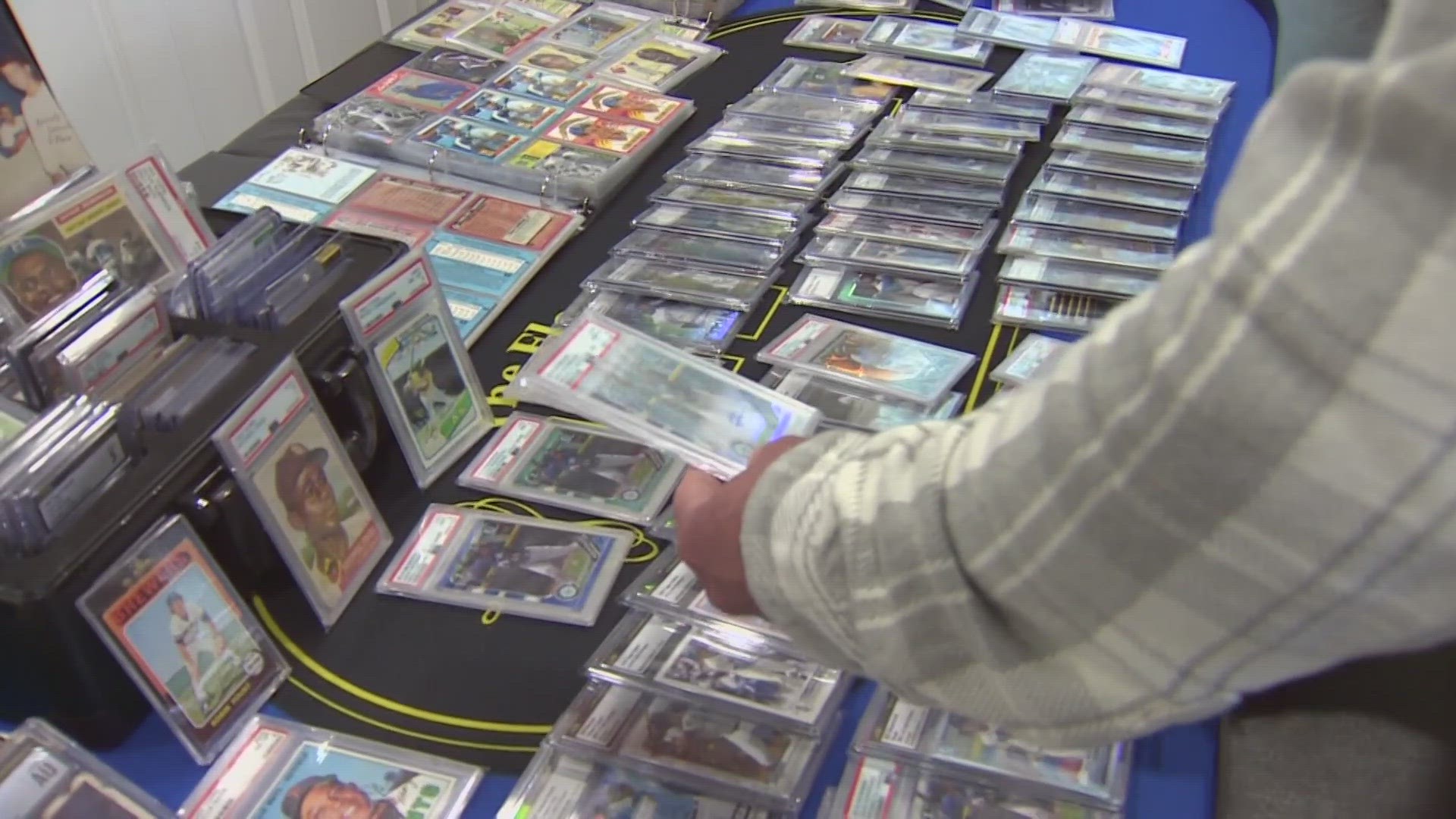GIG HARBOR, Wash. — Mariners excitement continues after Thursday's Opening Day victory over the Cleveland Guardians.
As fans all over Washington still feel that opening day magic, some are hoping to take advantage of the moment with something even non-baseball fans can understand: cold, hard cash.
"I have multiple $10,000 cards, I have multiple $50 cards," said Justin Skogen, a baseball collector.
For Skogen, it's all about the diamond.
"As a kid we all wanted to be a professional player or something right and these memorialize these guys they make them closer to home," said Skogen who started collecting baseball cards at 6 years old growing up playing little league in the suburbs of Milwaukee.
Nearly 40 years later, Skogen has a collection that he said tops 500,000 cards and earns him about $30,000 a year as a side gig that's now become a family business.
"My son.. also plays baseball he's a pitcher here in Gig Harbor and he took a liking to the same kind of thing..my daughter isn't so much into the cards but she likes the business part of it," said Skogen who has a day job working in sales.
Skogen said a big part of his passion comes from the community and friends he makes along the way.
The sports trading card market value is expected to reach $20 billion by 2030, according to Verified Market Research.
But what makes a baseball card valuable?
"Autographs in every box, relic cards like little pieces of jerseys, numbered cards, parallels there's so many different ways you can collect," said Nathan Ullevig, owner of Big Nates Trading Cards in Gig Harbor.
Ullevig, or Big Nate as friends in the community call him, opened up his card shop in 2019 after wanting a place to drink beer and talk cards with his friends.
What started out as a part-time job, is now his full-time business.
"We're probably doing five times as much as when we first opened," said Ullevig, whose shop also sells Pokémon and basketball cards along with accessories.
Ullevig credits the recent baseball card boom to celebrities like Mark Wahlberg and social media for bringing in a younger audience.
"Everyone from 5-year-olds who are coming in after winning a soccer game, to people that have been buying and selling for 40-50 years," Ullevig said.
But Ullevig said it's mostly fans like Skogen who simply love the game.
"When you're not at the game these guys are kind of with you, you can follow along and enjoy their journey too," Skogen said.

